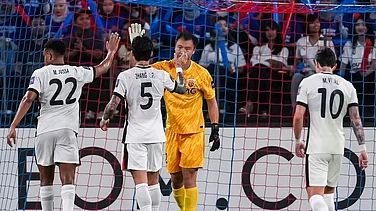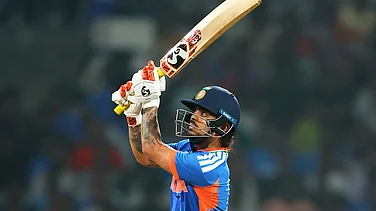Chile argued it had documents proving Ecuador defender Byron Castillo was actually Colombian and should have been ineligible for the eight World Cup qualifying games he played in.
However, “at no point did (Chile) provide cogent evidence' that the documents related to the individual born in Colombia indeed relate to the player,” the judges ruled.
The 64-page appeal verdict released by FIFA is needed by the Chilean federation as the basis of another urgent legal challenge at the Court of Arbitration for Sport.
There are just 53 days left for that judgment to be issued before Ecuador is due to play in the World Cup opening game against host nation Qatar, on Nov. 20 in Doha.
If the FIFA appeal committee had ruled that Castillo was ineligible, Ecuador would have forfeited all eight games he played in — including two wins over Chile — as 3-0 losses and dropped out of contention in the South American qualifying group.
But the three FIFA-appointed judges wrote they were convinced both that there was no falsification of Castillo's documents to get an Ecuadorian passport and identity document, and that he complied with the soccer body's rules to play for the national team.
“There is no element on file that could suggest that the player would actually be Colombian, or bear another nationality,” wrote the judging panel chaired by Neil Eggleston, a former White House Counsel.
The case “revolved around three key sets of documents,” the judges said. They were: Birth certificates from Colombia and Ecuador; case files from the Ecuadorian soccer federation's 2018 investigation into Castillo's identity; court decisions in Ecuador plus national identification documents. Those included a passport issued on Nov. 13, 2017.
The passport and subsequent ID documents have “undoubtedly been issued by the competent state authorities and, as such, are to be considered genuine and authentic,” the verdict stated.
Castillo is eligible to play at the Nov. 20-Dec. 18 tournament in Qatar, where Ecuador will also play the Netherlands and Senegal in Group A.
He does face a separate FIFA disciplinary case which the judges requested because he did not take part in the Sept. 16 appeal hearing held by video link. Any potential punishment would not affect his ability to play in Qatar.
The detailed verdict confirmed that a Qatari judge originally selected by FIFA for the case withdrew after Chile objected to a potential conflict of interest because the case was to decide Qatar's opponent in the opening game. An Iranian lawyer was picked instead.





















